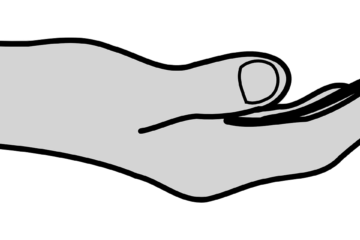Health savings accounts and flexible spending accounts can be very useful financial and healthcare tools. However, there are some major differences between HSAs and FSAs that you should know about. They both operate differently as well as have different limitations to how they operate. Let me explain.
(1) Who Can Use an HSA and Who Can Use an FSA
For broad stroke purposes, HSAs can be used only by people who have a high deductible healthcare plan. FSAs can be used with any healthcare plan, regardless of the plan being high deductible or low deductible.
If you have a high deductible healthcare plan and you want to contribute to an HSA, you can also contribute to an FSA if you so choose.
But if you have a low deductible healthcare plan, the only option you have is an FSA. An HSA is not available to you.
Also, if you are self-employed, you will not be eligible for an HSA. You, however, can have an FSA.
(2) Annual Contribution Limits
The second of the differences between HSAs and FSAs are the contribution limits that they each have.
Health Savings Accounts have an annual contribution limit of (in 2022):
- $3,600 for the individual or
- $7,200 for a family
Flexible Spending Accounts have an annual contribution limit of (in 2022):
- $2,750 for the individual
These are really important numbers to know so that you can decide if an HSA or FSA (or both) is better for you.
It is also important to note that you can change your HSA contribution amount throughout the year if you need to. However, once you set the FSA contribution amount you are stuck with it until the year is over or you leave your job.
(3) HSA and FSA Carryover Rules
This is probably the biggest difference between HSAs and FSAs. (And also the most important one to know.)
If you contribute to an HSA over the course of the year and then at the end of the year you haven’t used all (or any) of that money, it is okay because the money will carry over to the next year. The same thing would be true with the next year, the year after that, and so on.
Also, if you were to leave your job at any point, the HSA is still yours. You get to keep it and use it in the future because it is YOUR money.
An FSA doesn’t work the same way. All of the money that you put into an FSA has to be used by the end of the year. If you don’t use that money, it simply goes away and you lose it.
Also, if you were to leave your job, then you would also forfeit that FSA. You might even have to pay back money that was taken out of the FSA prematurely. So make sure that you take that into consideration if you think you might leave your job in the next year.
Just make sure that if you have an FSA or are thinking about putting money into an FSA, that you will DEFINITELY use the money before the year is up. Otherwise you will just be throwing away money.
Final Thoughts
While there are still more differences between HSAs and FSAs, those are the big ones that will affect most people deciding to choose between them.
There are a lot of things to consider in your financial life as well as your physical life. Make sure to look at all of the options to you when you start a new job or you are in your open enrollment period. Sometimes, an FSA makes a lot of sense as long as you don’t forget about it throughout the year. But sometimes it does not make sense. Likewise with HSAs.
I am here to help you sift through the financial decisions that you need to make to help give you the best tools that I can so that you can make an informed decision for yourself. 🙂
I am here for you!
Until next time!



0 Comments